For more than a century, sound waves and broadcasts have played an important role in shaping media as we know it. Here's how to implement them into your social media strategy. They have become popular in short video animations used to promote audio on social media, commonly referred to as audiograms.
Before learning everything there is to know about audiograms and how to make them, let's gain a better understanding of the significance of these patterns.
In this article
Understanding Audio Waveforms and Audio Wave Animation
A sound wave is the vibration of air molecules, which is how sound travels. The waveform describes the wave using a graph of how the air molecule is displaced over time. Amplitude is the strength of a wave's action; the higher the amplitude, the more the air molecules are displaced. This also translates into loudness for the human ear; increasing the amplitude of the wave will increase how loud it appears to us. Sine, triangle, square, and sawtooth waveforms are the most typical periodic waveforms.
A waveform animation video is a short video clip that can be uploaded to social media that combines an audio file with a static background image and a straightforward waveform animation. Audio animations, an example of audio visualization, make for fantastic video content, which is increasingly valuable on ever-noisy social media platforms.

We all know that there is a special way of feeling called synesthesia, which is both a psychological and a linguistic phenomenon. Similar to how you automatically link this rain scene with the sound of heavy rain when you see it. People's newly awakened senses are more about the synthesis of sensory experience with actual life experience than they are entirely about actual information. Therefore, for clean audio, enhancing it with complementary visual animation effects will improve the user's visual experience and, to some extent, offer additional information and impact to your audio.
Best 5 Audio Waveform Generators
Audio visualization can be presented in a variety of ways. The simplest kind of processing involves taking low-dimensional information like frequency, loudness, and rhythm and converting them into images in the form of colors, forms, strokes, etc. However, modern artificial intelligence technology can now extract high-dimensional visual attributes including style, tone, and emotion. But, for most non-technical players, such processes are obviously out of their league, therefore your best choice is to use a basic audio waveform generator. Following, we'll suggest 5 desktop or online generators so you may quickly finish the audio visualization project and create your audio-related videos.
Filmora Audio Visualizer
You may add audio spectrum visualizers to videos using a variety of tools. But one of the best software we recommend is Filmora audio visualizer because you can edit all sound effects on this platform with just one button. Filmora has audio keyframing and a built-in equalizer that can create unique sound effects and make the audio recording more appealing when you hear it.
Price: Subscription plan started from US$ 49.99
- Superb video stabilization with low distortion.
- Vast video/audio effects and creative assets.
- Powerful AI for effortless content creation.
- Intuitive, professional yet beginner-friendly.
- Works on Mac, Windows, iOS, and Android.
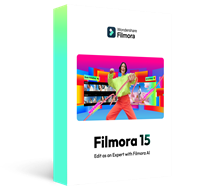
How to Make Audio Waveform with Templates in Filmora
Step1 Downloading Filmora and Importing Files
- Download and install Wodershare Filmora on your PC or Mac.
- Start making your "New Project".
- Import your files. Filmora will display imported files on your project.
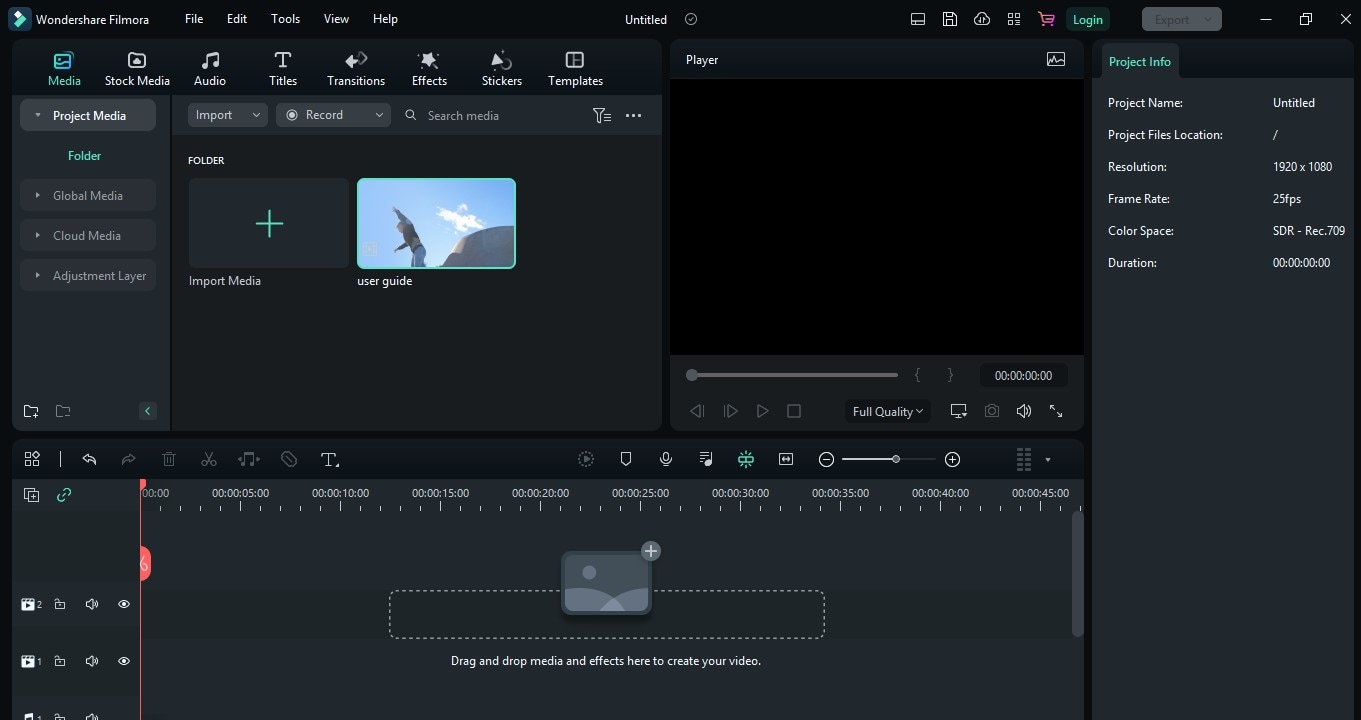
Step2 Making Layers to the Timeline
- Add your music to "Timeline".
- Now drag the background image to the timeline. And increase its duration to that of the audio file.
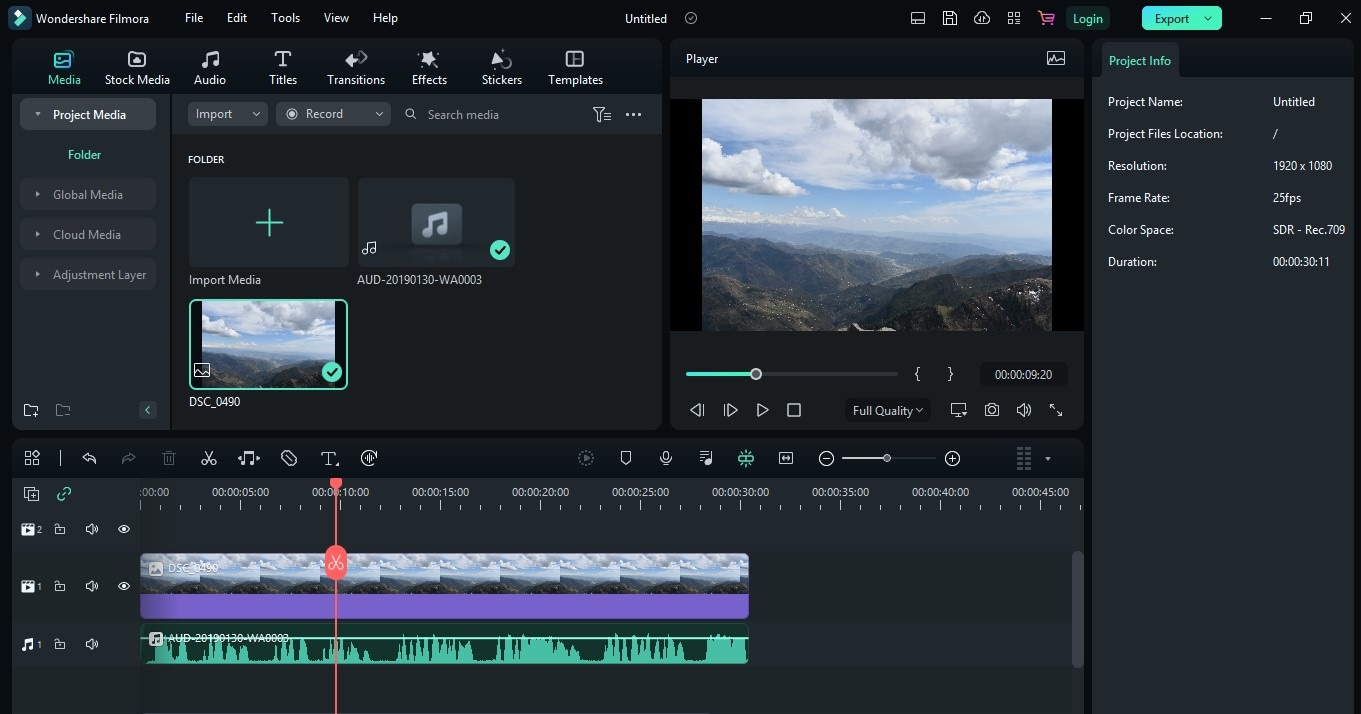
Step3 Adding Effects to the Layers
- Select the "Effects" button. Next, click "AudioEffects" and choose the "Audio Visualizer" category.
- Bring any visualizer of your choice to the timeline.
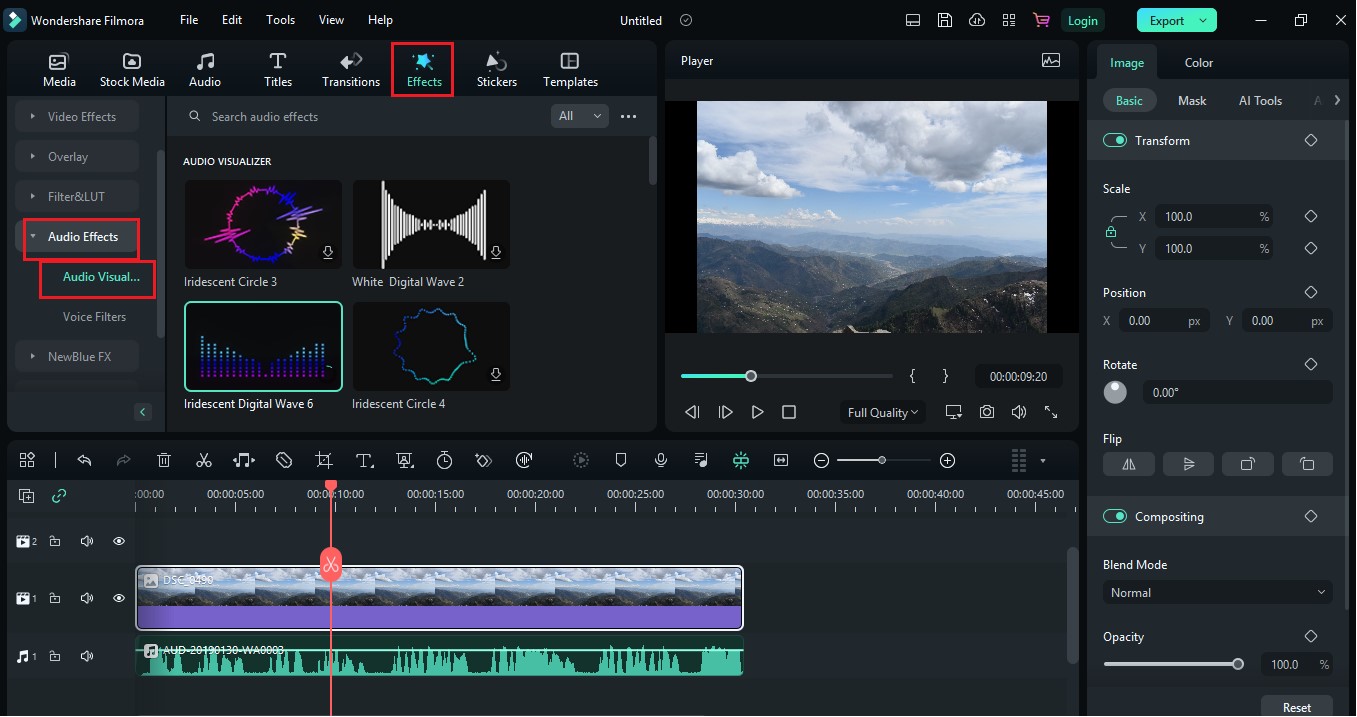
- Double-click on the visualizer to adjust color settings.
- Now bring your portrait photo to the timeline and adjust its size.
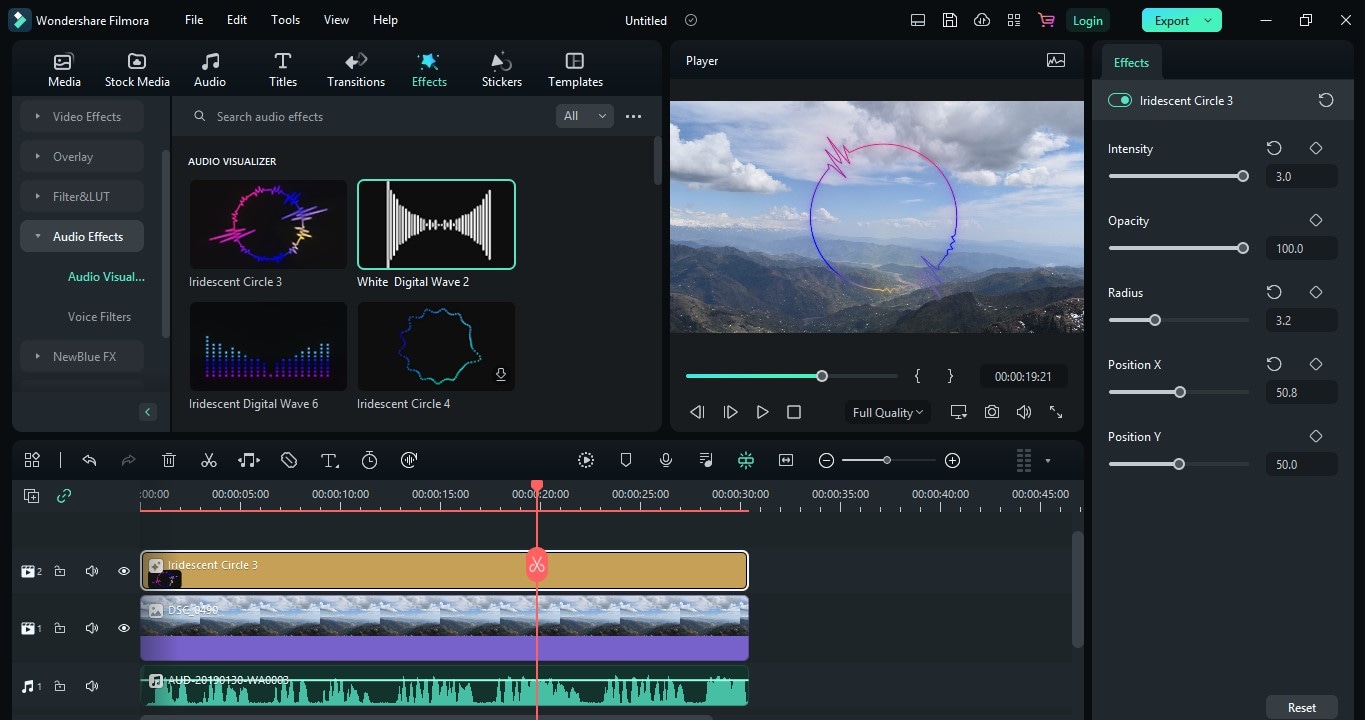
- Go to the "Audio Visualizer" again and bring any visualizer to the timeline.
- Go the the "Mask" settings and change it according to your wish.
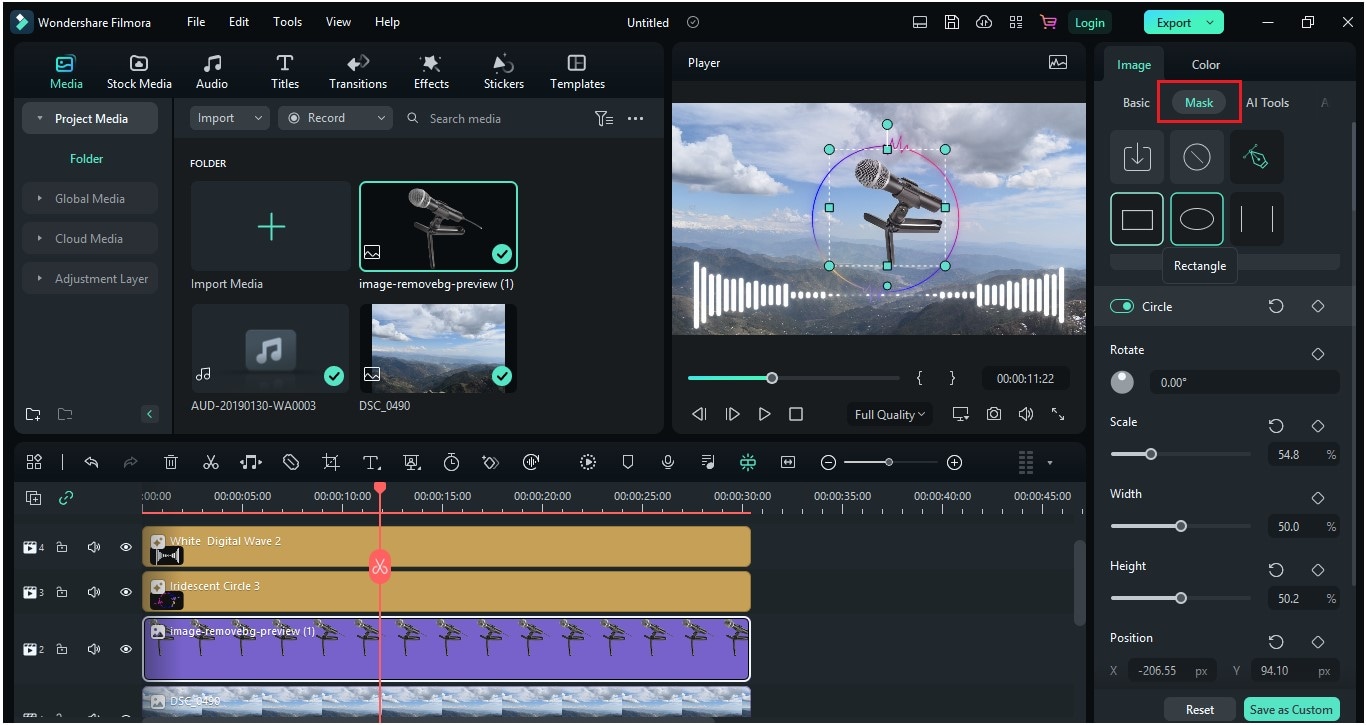
Step4 Adding Text to the Project
- You can add text to the layer by clicking the "Title" button. Add it to the timeline. By double-clicking on the title, you can add text.
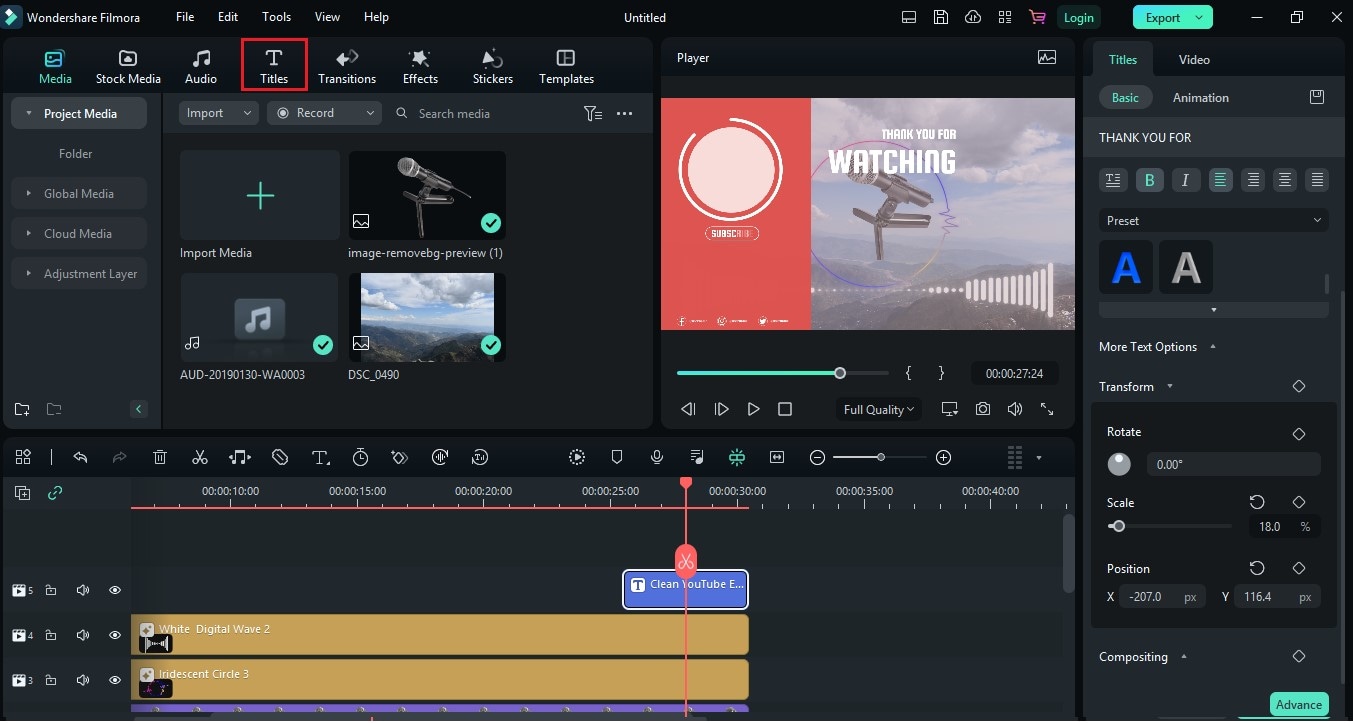
- You are ready to go with your audio Waveform Generator.
Magic Music Visuals
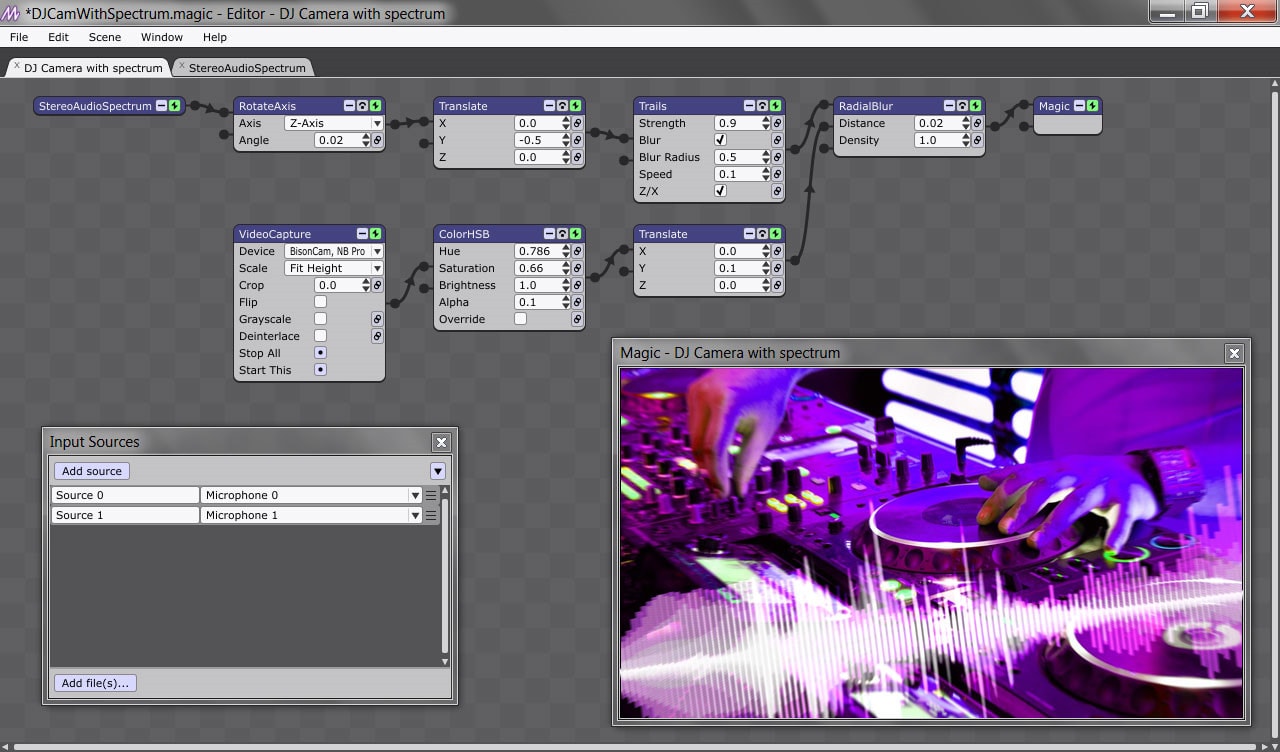
VJs and all other artists who like to combine sound and images during live performances can use the Performer edition of this cross-platform music visualization software. The Studio edition offers all the functions that are necessary to create music visualizations or music videos in real-time. You can use both editions of Magic to generate 2D and 3D graphics that respond to music or mix photos, 3D files, or videos. In addition, you can easily enter full-screen mode and project your videos using LED displays or projectors. Magic Music Visuals also allows its users to combine an unlimited number of audio inputs simultaneously, meaning you can effortlessly mix two or more tracks. This music visualization software allows you to export videos in mp4 and MOV files, but the length of the rendering process depends on the length of the video and the performance of the computer you are using.
Price: Free demo available, $44.95 for a full version license
VSDC Video Editor Free - Audio Spectrum Visualizer
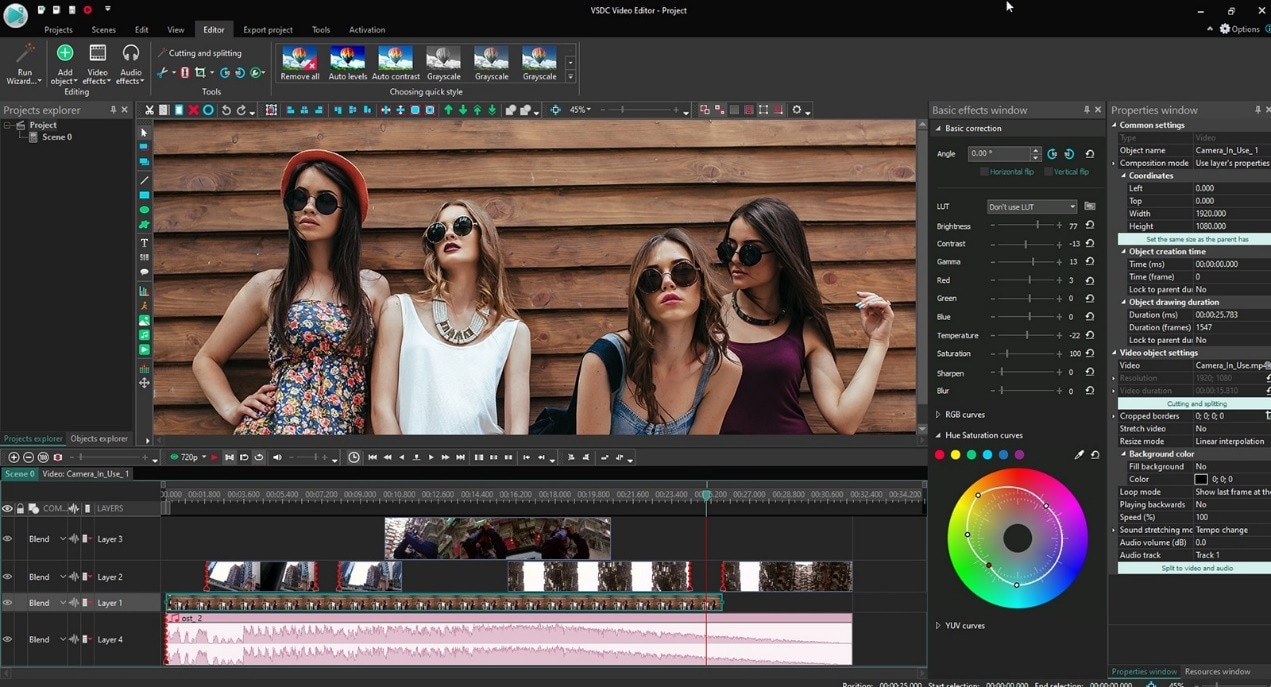
Music visualization is just one of the countless video editing options offered by VDSC Video Editor Free. In addition to creating music-based videos, you can also use this video editing software product to stabilize videos recorded by action cameras, enhance colors in footage captured by a wide range of cameras and drones, create 3D graphics, or export high-quality videos. Resolution to your social media accounts directly from the software. The editor's Audio Visualizer contains five hundred presets that you can use to create a captivating music video for your latest track. In addition to Spectrum, which displays sounds within a set color range, VDSC Video Editor also offers Audio Abstraction, which generates colorful abstract shapes based on the music you select. While visualizing audio with VDSC Audio Visualizer is a fun and simple process, video creators with no prior video editing experience may need some time to get used to the software's interface.
Price: Free
Renderforest Music Visualizer
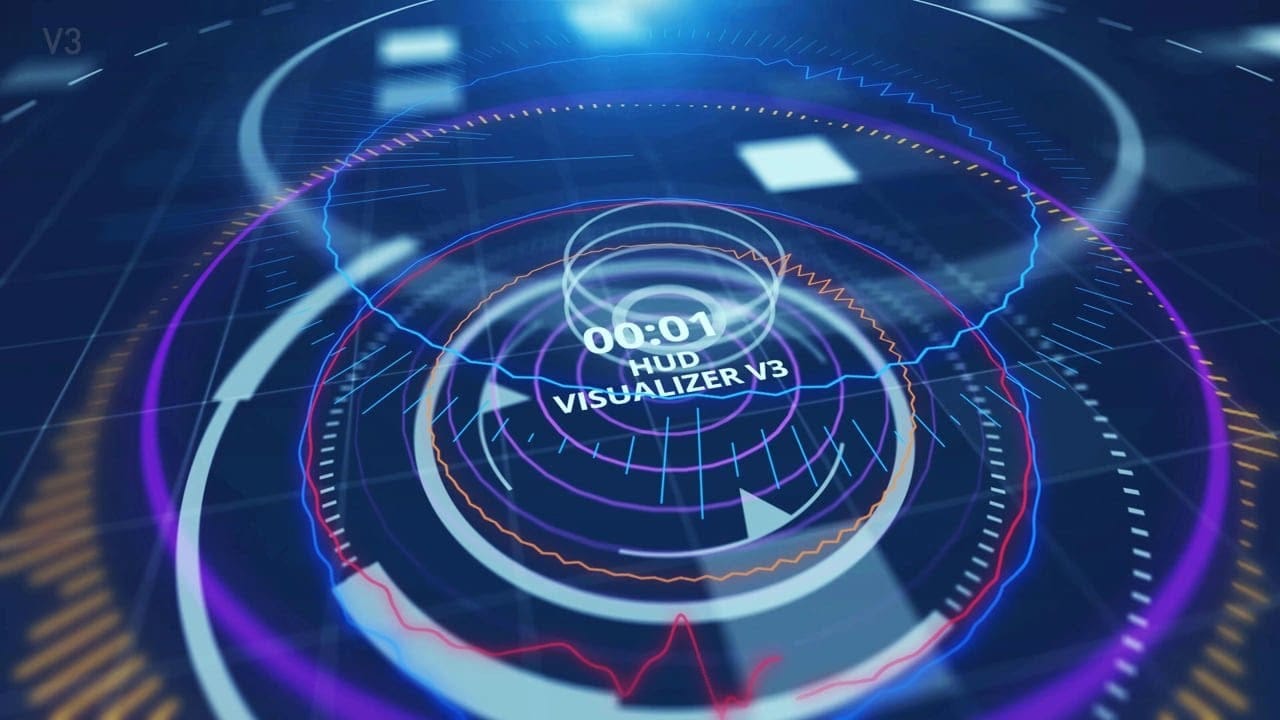
Renderforest is a platform that enables users to design whole websites or upload visual assets for online use. However, to start visualizing your music with Renderforest, you must first register and create your account. Then just choose between visualization templates with text or photo holders, add the artist's name and track title, then add a background photo or video. You can proceed to choose a visualization style that perfectly matches the music, chooses its color, and finally uploads the song you want to use in your video. Once done, you should simply click on the Preview icon and Renderforest will send you an email containing a video of the music visualization. Keep in mind that all videos created using the free version of the platform will be watermarked and cannot exceed the one-minute limit.
Price: Free version accessible; $9.99 is the starting price for subscriptions.
Videobolt Music Visualizer
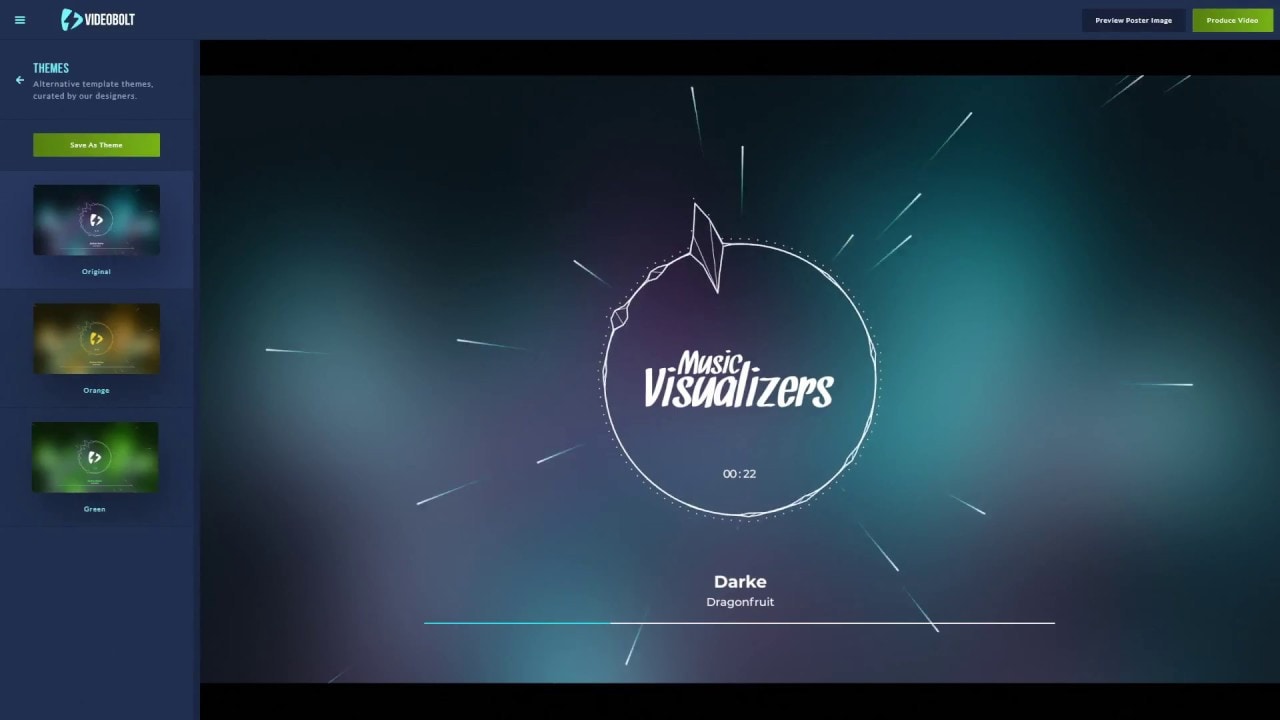
The collection of music visualization templates that this website offers is really impressive as you can choose from a wide variety of templates during the video creation process. However, you must purchase one of the available subscription plans to customize the template you've selected and export it without a watermark. After selecting a music visualization template, just click the Edit button below it and start working on your project. You can either upload a song from your computer or use SoundCloud to import the song you want to visualize into your project. You can improve the quality of your video by adding a cover or using a variation of the template you originally selected. The only downside is that you won't be able to edit the videos produced by Videobolt Music Visualizer during the free trial period.
Price: Free trial available, subscription plans start from $7.99 per month
The All-in-One Solution: Filmora Audio Visualizer & Music Library
Before you can create a stunning audio waveform animation, you need one essential ingredient: the perfect audio track. While many generators require you to find and import your own music, an integrated editor like Wondershare Filmora streamlines the entire process.
Filmora is not just a powerful audio visualizer; it's a complete creative suite that includes a massive, built-in library of royalty-free music and sound effects. You can find the perfect track for your project and start creating your animation without ever leaving the application. To get your creative ideas flowing, here's a small sample of what's available inside:
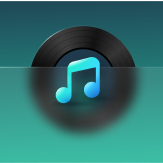
























Conclusion
Filmora Audio Visualizer is one of the top-rated audio editing software tools due to its incredible features and interface. If you want to create amazing sound effects on your video, we highly recommend you download this software on your computer to enjoy all the amazing editing tools. Social media content creators, musicians, and VJs can produce stunning videos with any of the music visualizers we've listed in this article. What's your favorite music visualizer to use to create videos based on music? Please let us know by leaving a comment below.



 100% Security Verified | No Subscription Required | No Malware
100% Security Verified | No Subscription Required | No Malware

